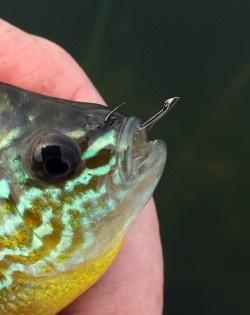Red Wiggler Bait: Top-rated bait for targeting freshwater and saltwater fish.
Red Wiggler Bait: Top-rated bait for targeting freshwater and saltwater fish.
Blog Article
The Unique Advantages of Utilizing Red Wiggler as Bait for Effective Fishing Expedition
The utilization of red wigglers as bait presents unique advantages that can significantly improve the success of angling trips. The real breadth of their advantages prolongs past these initial observations, inviting a closer assessment of exactly how red wigglers can be strategically employed in varied angling problems.
(Lake Hickory Bait)
Superior Appearance to Fish
(Red Wiggler Express)When it concerns attracting fish, red wiggler worms stand apart because of their dynamic shade and all-natural motions. Their reddish shade is particularly appealing to various fish varieties, which are intuitively drawn to bright colors that signify food schedule. This aesthetic appearance can substantially improve the possibility of a successful angling journey.
Furthermore, red wigglers are frequently found in varied water environments, making them an acquainted view for numerous fish. This familiarity raises their efficiency as bait, as fish are more likely to bite on something they recognize as an all-natural food resource. Furthermore, the nutritional account of red wigglers adds to their value; they are rich in healthy protein and vital fatty acids, making them a very healthy choice for fish.

Natural Motion and Texture
The natural movement and texture of red wiggler worms play a crucial role in their effectiveness as angling lure. Unlike fabricated attractions, which commonly do not have reasonable movement, red wigglers exhibit a natural twitching activity that is extremely appealing to fish.
Additionally, the texture of red wigglers boosts their charm. Additionally, the lively coloration of red wigglers boosts exposure in various water conditions, further raising their efficiency.
Enhanced Fragrance and Flavor
Improved scent and taste play a significant duty in making red wiggler worms an exceptional option for fishing lure. These worms naturally send out a potent fragrance that draws in a selection of fish types, consisting of bass, trout, and panfish. The olfactory detects of fish are carefully tuned to find scents in their setting, and the unique smell of red wigglers can activate feeding responses, boosting the likelihood of an effective catch.
Additionally, red wigglers possess an unique taste account that attract fish - Fishing Worm bait. The combination of their natural oils and the raw material they eat throughout their lifecycle adds to an abundant taste that fish find alluring. This boosted flavor not only makes them an attractive lure alternative yet also creates a much more engaging experience for anglers wanting to tempt in fish
When integrated with their all-natural activity and structure, the improved aroma and taste of red wigglers develop a collaborating result that elevates their effectiveness as bait. Anglers seeking to improve their success rates on fishing trips ought to think about integrating red wigglers right into their bait choice, exploiting on these distinct features to attract even more fish.
Eco-Friendly and Lasting Alternative
An increasing variety of fishermens are transforming to red wiggler worms as an eco-friendly and sustainable lure option. Unlike traditional lure resources, which often involve overfishing or environment disturbance, red wigglers are a renewable energy that can be quickly cultivated at home or sourced from neighborhood distributors. Fishing Worm bait. Their capacity to prosper on organic waste makes them an environmentally responsible selection that adds to lowering land fill waste while supplying top notch lure
In addition, red wigglers play a critical duty in dirt health and wellness and ecological community equilibrium. By making use of these worms, fishermens not only support lasting fishing methods but also advertise environmental well-being. This aligns with the expanding motion among exterior lovers who focus on conservation and ecological stewardship.
Additionally, red wigglers are non-invasive and do not pose a danger to local communities when used properly. Their use as lure is a step in the direction of promoting a much more sustainable angling culture, urging anglers to take into consideration the long-term influences of their choices. By selecting red wigglers, fishermen can enjoy their sporting activity while actively contributing to the conservation of water environments and the total health and wellness of the atmosphere.
Adaptability in Various Angling Problems
Red wiggler worms demonstrate impressive flexibility, making them ideal for a variety of fishing problems. Their flexibility allows anglers to use them in freshwater, deep sea, and briny environments, accommodating a large array of fish species. In freshwater lakes and rivers, red wigglers are specifically reliable for targeting varieties such as trout, bass, and panfish. Their natural motion mimics that of a bug or tiny fish, bring in predators and enhancing bite rates.
In deep sea applications, red wigglers can be utilized for surf fishing or pier fishing, pulling in species like flounder, redirected here snapper, and striped bass. Their robust nature allows them to stand up to difficult problems, such as solid currents and differed temperatures, without losing efficiency.
Additionally, red wigglers can be provided in many methods, consisting of online, cut, or as part of a bait cocktail, enhancing their beauty to fish. This adaptability to various rigging strategies, such as lower angling or float angling, additionally strengthens their condition as an important bait option. Generally, the adaptability of red wigglers guarantees that anglers can optimize their angling experiences throughout diverse setups and target a wide spectrum of aquatic life.

Verdict
In verdict, red wigglers existing various advantages as lure for fishing undertakings. Furthermore, as an environmentally friendly and lasting choice, red wigglers straighten with accountable angling practices.
Report this page